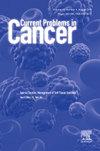Creating a culture for change: Lessons from behavioral economics and complexity science to increase serious illness conversations for patients with cancer
IF 2.5
4区 医学
Q3 ONCOLOGY
引用次数: 0
Abstract
Patient-centered cancer care requires communication between patients and clinicians about patients’ goals, values, and preferences. Serious illness communication improves patient and caregiver outcomes, the value and quality of cancer care, and the well-being of clinicians. Despite these benefits, there are competing factors including time, capacity, bandwidth, and resistance. Health systems and oncology practices have opportunities to invest in pathways that assist patients and clinicians to engage in serious illness conversations. We discuss how applying insights from behavioral economics and complexity science may help clinicians engage in serious illness conversation and improve patient-centered cancer care.
创造变革文化:从行为经济学和复杂性科学中汲取经验教训,增加癌症患者的严重疾病对话。
以患者为中心的癌症护理需要患者和临床医生就患者的目标、价值观和偏好进行沟通。重症沟通改善了患者和护理人员的结果、癌症护理的价值和质量以及临床医生的福祉。尽管有这些好处,但也存在竞争因素,包括时间、容量、带宽和阻力。卫生系统和肿瘤学实践有机会投资于帮助患者和临床医生参与严重疾病对话的途径。我们讨论了应用行为经济学和复杂性科学的见解如何帮助临床医生参与重大疾病对话,并改善以患者为中心的癌症护理。
本文章由计算机程序翻译,如有差异,请以英文原文为准。
求助全文
约1分钟内获得全文
求助全文
来源期刊

Current Problems in Cancer
医学-肿瘤学
CiteScore
5.10
自引率
0.00%
发文量
71
审稿时长
15 days
期刊介绍:
Current Problems in Cancer seeks to promote and disseminate innovative, transformative, and impactful data on patient-oriented cancer research and clinical care. Specifically, the journal''s scope is focused on reporting the results of well-designed cancer studies that influence/alter practice or identify new directions in clinical cancer research. These studies can include novel therapeutic approaches, new strategies for early diagnosis, cancer clinical trials, and supportive care, among others. Papers that focus solely on laboratory-based or basic science research are discouraged. The journal''s format also allows, on occasion, for a multi-faceted overview of a single topic via a curated selection of review articles, while also offering articles that present dynamic material that influences the oncology field.
 求助内容:
求助内容: 应助结果提醒方式:
应助结果提醒方式:


